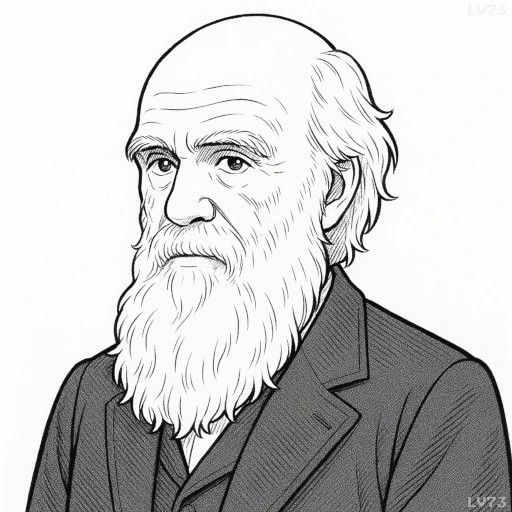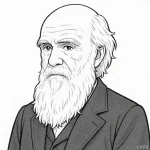“An American monkey, after getting drunk on brandy, would never touch it again, and thus is much wiser than most men.”

- February 12, 1809 – April 19, 1882
- Born in England (UK)
- Naturalist, geologist, biologist
table of contents
Quote
“An American monkey, after getting drunk on brandy, would never touch it again, and thus is much wiser than most men.”
Explanation
In this quote, Charles Darwin humorously contrasts human behavior with that of an animal to highlight the irrationality or lack of wisdom often exhibited by people. Darwin points out that an American monkey, after experiencing the negative effects of alcohol, would avoid it in the future, implying that it possesses a kind of instinctive wisdom in learning from its experiences. By contrast, humans, despite the negative consequences of actions like overindulgence or harmful habits, often continue to engage in them, suggesting a lack of learning or self-control. Darwin’s playful commentary subtly critiques the human tendency to repeat mistakes, even when the outcomes are undesirable.
Historically, Darwin’s observations of animals were integral to his broader work on evolutionary theory. He often compared human behavior to that of other species, not to belittle humanity, but to underscore the commonalities between humans and animals. This comparison can be seen as part of his exploration of the shared traits that humans have with other creatures, many of which evolved to help them survive and thrive. His recognition of the monkey’s ability to avoid repeated harmful behavior can be seen as an analogy for the instinctual intelligence found in nature, contrasting with human tendencies to sometimes act against self-interest despite knowledge of the consequences.
In modern times, Darwin’s quote touches on human behavior and addiction. It highlights how people can often persist in harmful behaviors, even when they know the consequences, whether it’s addiction to substances like alcohol or harmful patterns in life. The quote speaks to the difficulty in breaking habits and the importance of self-awareness and self-regulation. Today, the field of behavioral science and psychology continues to explore why humans struggle to break harmful cycles despite knowing better. Darwin’s quote serves as both a reflection on human nature and a reminder of the wisdom that can be found in other species, challenging us to learn from the instinctive behaviors that help animals avoid repeating mistakes.
Would you like to share your impressions or related stories about this quote in the comments section?


